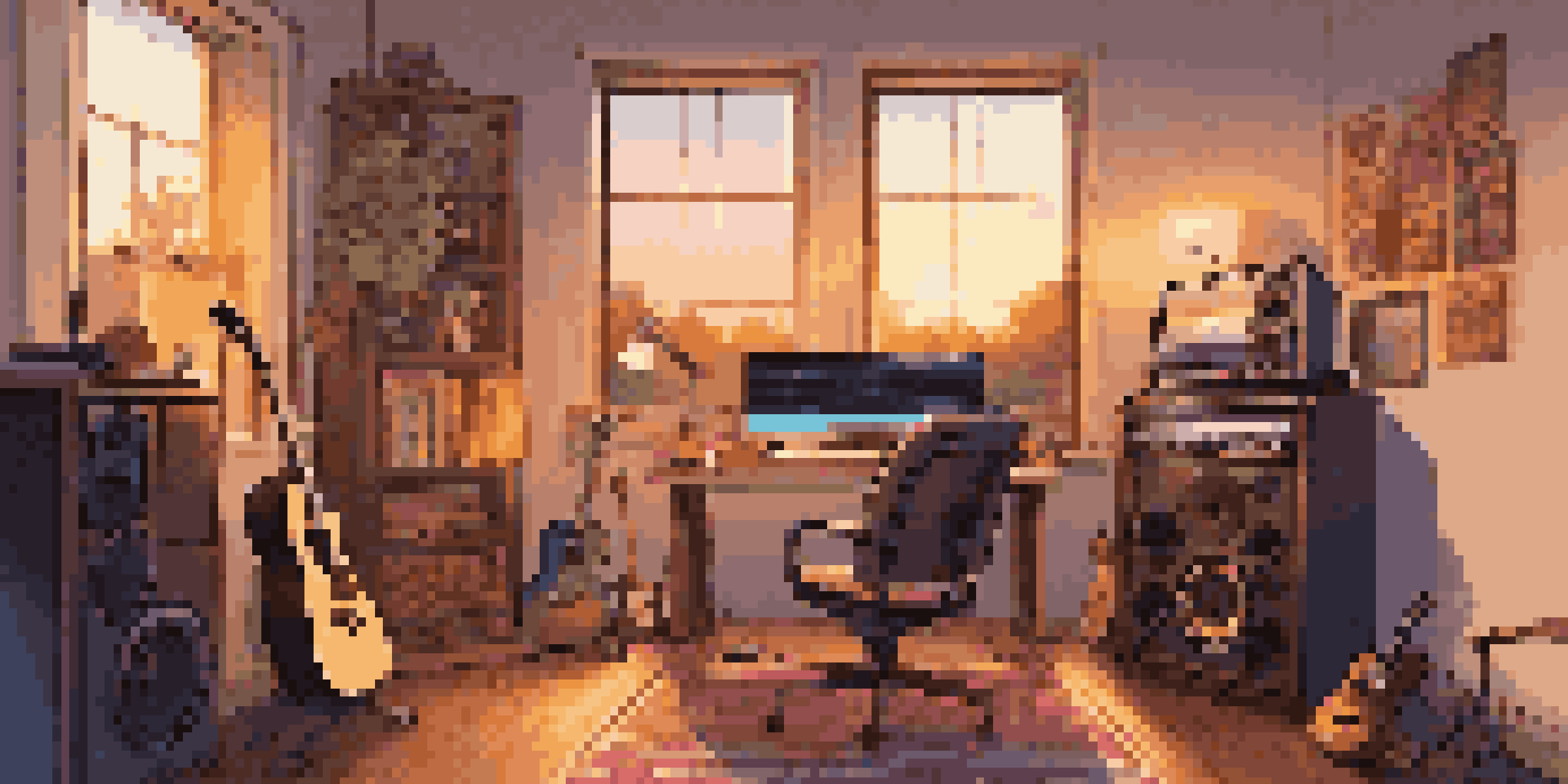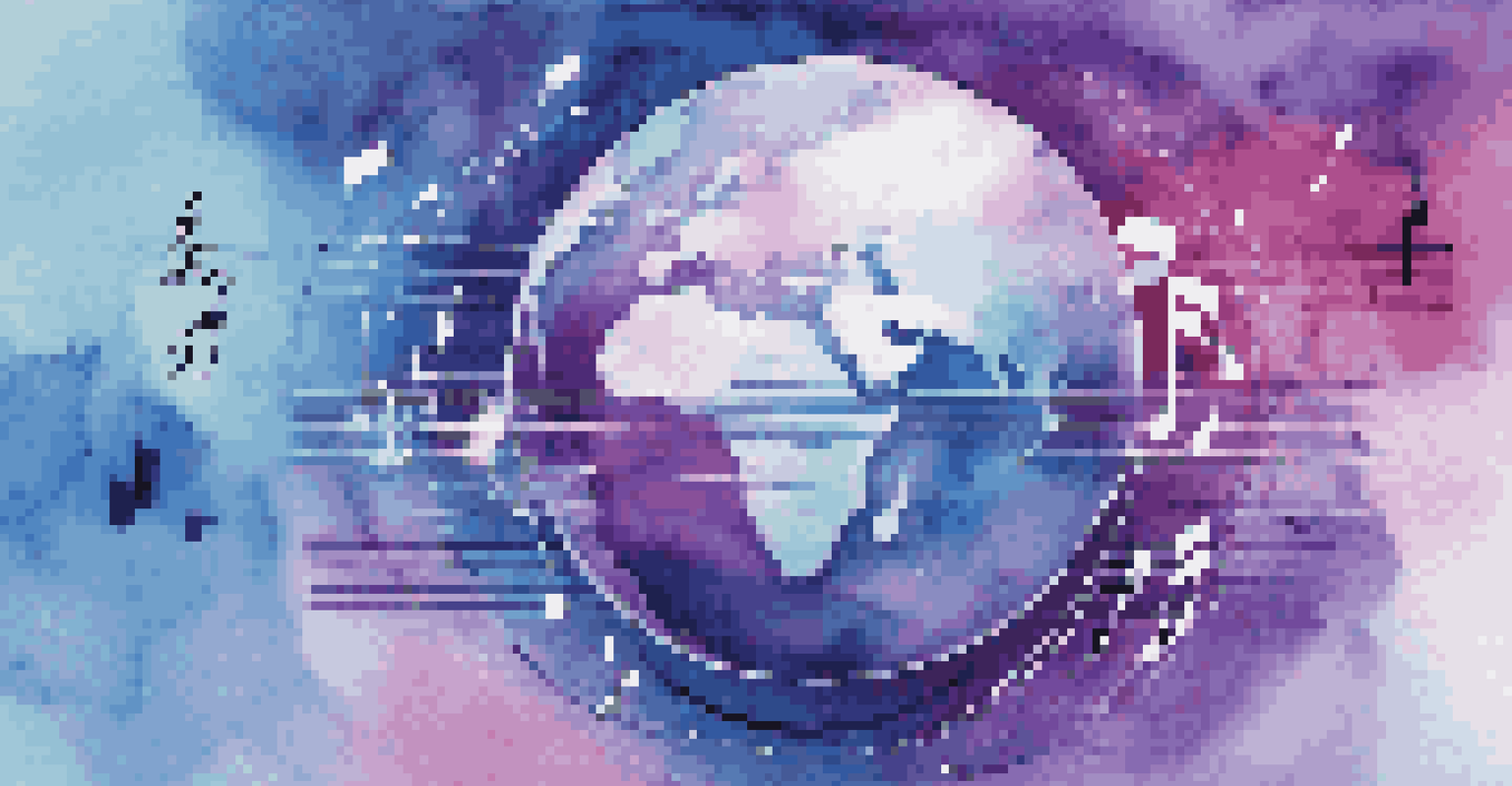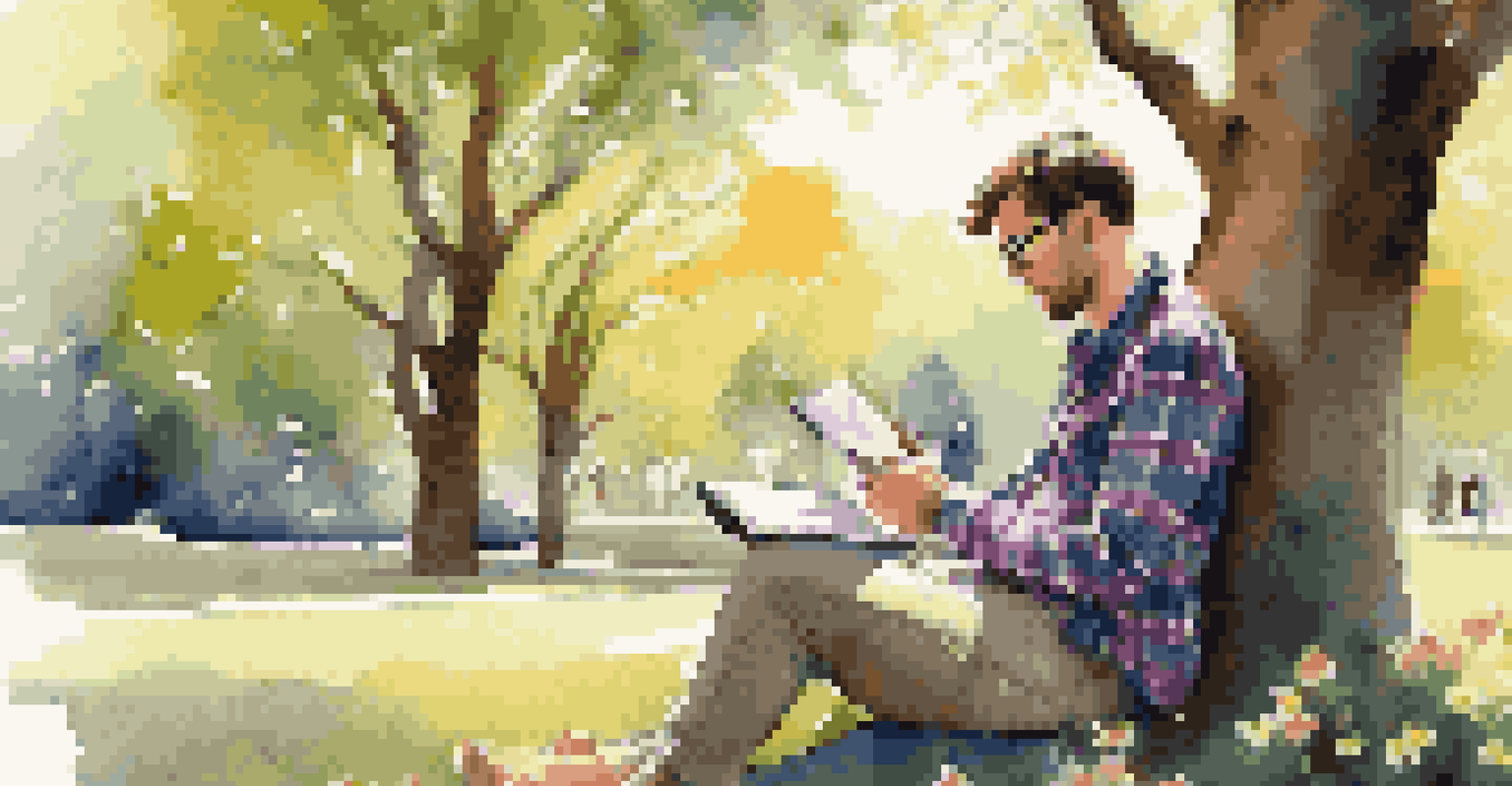The Influence of Digital Tools on Songwriting Techniques Today

The Rise of Digital Tools in Songwriting
In recent years, digital tools have become essential for songwriters. From software like Ableton Live and GarageBand to online collaboration platforms, these tools have made music creation more accessible than ever. Many artists, regardless of their experience level, can now produce high-quality tracks from their own homes. This shift has not only democratized music creation but also fostered innovation in songwriting techniques.
Music is the shorthand of emotion.
The availability of digital instruments and samples allows songwriters to experiment with sounds that were once difficult or costly to obtain. For example, an aspiring musician can easily access a vast library of sounds at the click of a button, leading to more diverse and unique compositions. This wealth of resources encourages a playful approach to songwriting, where ideas can be quickly tested and refined.
Additionally, the ability to record and edit tracks digitally means that songwriters can iterate on their work more efficiently. Gone are the days of needing a full studio setup to produce a demo. Now, a simple laptop and some basic software can yield professional results, pushing artists to explore their creativity without the fear of making mistakes.
Collaboration in the Digital Age
Digital tools have transformed how songwriters collaborate, breaking geographical barriers. With platforms like Splice and Soundtrap, artists can work together in real-time, sharing ideas and feedback instantly. This ease of communication fosters a sense of community and allows for a rich exchange of musical influences, which can lead to exciting new sounds.

For instance, a songwriter in New York can easily collaborate with a producer in London, blending their unique styles and perspectives. This global connectivity not only expands the creative possibilities but also enriches the songwriting process. It encourages artists to step outside their comfort zones and experiment with genres they may not have explored otherwise.
Digital Tools Revolutionize Songwriting
The rise of digital tools has made music creation more accessible, allowing songwriters to experiment and iterate on their work efficiently.
Moreover, the rise of social media allows songwriters to showcase their work and connect with fans and other artists. Platforms like Instagram and TikTok enable musicians to share snippets of their songs, gather feedback, and even create viral trends. This instant interaction not only boosts visibility but also influences the creative direction of future projects.
The Impact of AI on Songwriting
Artificial intelligence (AI) is making waves in the music industry, particularly in songwriting. Tools like OpenAI's MuseNet and Jukedeck are capable of generating melodies and lyrics based on user input. While some might view this as a threat to creativity, many songwriters see AI as a valuable collaborator that can spark new ideas.
Technology is best when it brings people together.
For example, a songwriter might use AI-generated melodies as a foundation to build upon, adding their unique touch and personal experiences. This partnership between human creativity and machine learning can lead to innovative compositions that might not have been conceived otherwise. It opens up exciting avenues for experimentation and exploration.
However, the integration of AI in songwriting also raises questions about originality and authorship. As technology continues to evolve, songwriters must navigate these challenges while harnessing the benefits. Embracing AI could lead to a future where human and machine collaboration redefines the creative process in music.
The Role of Mobile Apps in Songwriting
Mobile apps have revolutionized the way songwriters capture their ideas on the go. With applications like Evernote and Voice Memos, artists can jot down lyrics or record melodies instantly, ensuring that inspiration is never lost. This convenience allows for a more spontaneous approach to songwriting, as ideas can be documented whenever they strike.
Additionally, many mobile apps come equipped with features that support music creation, such as chord progressions and virtual instruments. This means that songwriters can experiment with their music anywhere, whether they’re on a bus or waiting in line. The versatility these apps offer encourages constant creativity, making it easier for artists to develop their craft.
AI Enhances Creative Collaboration
Artificial intelligence serves as a valuable collaborator for songwriters, sparking new ideas and innovative compositions through human-machine partnerships.
Furthermore, as technology improves, more sophisticated features are being added to these apps, allowing for a seamless transition from idea to polished track. This means that even those with limited resources can create professional-sounding demos, paving the way for new artists to enter the industry.
The Influence of Streaming Platforms on Songwriting
Streaming platforms like Spotify and Apple Music have not only changed how we consume music but also how it’s created. With data analytics, songwriters can analyze listener preferences and trends to tailor their work accordingly. This insight can guide decisions about song structure, genre, and even lyrics, making the songwriting process more strategic.
For example, if a songwriter notices a rise in popularity for a specific genre or theme, they may choose to explore that in their upcoming work. This data-driven approach helps artists stay relevant in a competitive market, allowing them to connect with audiences more effectively. It’s almost like having a pulse on what listeners are craving.
However, this shift also places pressure on songwriters to produce hits that fit certain molds. While it can inspire creativity, it may also stifle individuality if artists feel compelled to chase trends. Balancing personal expression with market demands becomes a crucial challenge in today’s songwriting landscape.
The Importance of Online Communities for Songwriters
Online communities have emerged as vital support systems for songwriters, providing spaces for feedback, collaboration, and learning. Platforms like Reddit and SoundCloud allow artists to share their work, receive constructive criticism, and connect with like-minded individuals. This sense of belonging can be incredibly motivating for songwriters, fostering a spirit of camaraderie.
Additionally, these communities often host challenges and contests that encourage creativity and skill development. Participating in such events can push songwriters out of their comfort zones, prompting them to experiment with new styles and techniques. The shared experiences and mutual encouragement found in these spaces can lead to significant growth.
Streaming Platforms Shape Music Trends
Streaming platforms provide valuable data analytics that guide songwriters in tailoring their work to listener preferences while balancing personal expression.
Moreover, access to resources like tutorials, webinars, and songwriting workshops is more readily available than ever. This wealth of information equips songwriters with the tools they need to hone their craft, making it easier for them to navigate the complexities of the industry. In essence, these online communities empower artists to thrive in their musical journeys.
The Future of Songwriting in the Digital Era
As digital tools continue to evolve, the future of songwriting looks bright and full of possibilities. The integration of new technologies, such as virtual reality and augmented reality, could lead to entirely new ways of experiencing and creating music. Imagine a scenario where songwriters can immerse themselves in virtual environments that inspire their creativity.
Moreover, the ongoing development of AI and machine learning will likely deepen collaborations between humans and machines. This could lead to even more innovative songwriting techniques and styles, pushing the boundaries of what is considered music. The fusion of technology and artistry will continue to redefine the creative process.

Ultimately, as songwriters adapt to these changes, they will have the opportunity to express themselves in ways previously unimaginable. Embracing technology while staying true to their artistic vision will be key in crafting the next generation of music. The journey of songwriting is set to become even more dynamic and exciting in the years to come.